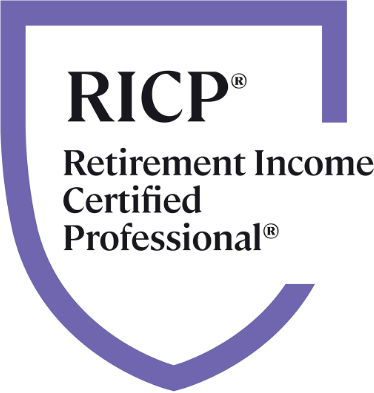Rising healthcare costs have been a growing concern among Americans for years, with surveys revealing that half of the population is unsure about their ability to cover essential medical expenses as they age. Even with comprehensive health insurance coverage, unexpected medical emergencies can quickly deplete emergency savings.
Fortunately, health savings accounts (HSAs) offer a tax-advantaged solution to help manage escalating healthcare expenses. HSAs are unique in that they are “triple tax free”: contributions are tax-deductible, funds grow tax-free, and withdrawals for qualified medical expenses are also tax-free. This makes HSAs an ideal tool to enhance your overall financial plan.
In this month’s blog we outline the advantages and disadvantages of opening an HSA, empowering you to make an informed decision about integrating it into your financial strategy.
HSA Benefits
One of the strongest arguments for opening up an HSA is it allows you to lower your federal income taxes by making tax-free deposits into your account. Because tax hasn’t been taken out, you end up with more to contribute. Many people have their HSA money withheld directly from their paycheck so that they never even see it or have to pay taxes on it. However, you don’t have to have it automatically withheld—you can just take a deduction when you file your taxes for the same result. Either way (saving now or saving later) you still save on taxes by contributing to an HSA.
HSA contributions made through payroll deductions also provide another tax advantage with regard to FICA taxes. FICA taxes are the payroll taxes that fund the Social Security and Medicare programs. If you make your HSA contribution via payroll deductions under a Section 125 cafeteria plan, these contributions are not subject to FICA taxes. Another tax savings!
Depending on the account, some HSAs also allow you to invest the money you contribute in mutual funds, ETFs, or other stocks. The earnings that you make from the HSA investments are also tax-free as long as you withdraw the funds to pay for medical expenses.
A Retirement Planning Strategy
While many people use their HSA funds to pay for current out-of-pocket medical expenses, you can also maximize your contributions, letting them grow for use in retirement when you’ll likely need them most. HSAs are a great complement to your other retirement savings accounts, allowing your IRAs and 401(k)s to cover regular living expenses. In this way, your HSA acts as a contingency fund earmarked just for health costs. Why wouldn’t you just stick with traditional retirement accounts? Because an HSA receives better tax treatment than any IRA or 401(k), it can be a powerful way to help maximize your nest egg.
What Do I Need to Get Started With an HSA?
To qualify for an HSA, you must meet the following requirements:
- Be covered under a high-deductible health plan
- Have no other healthcare coverage
- Not be enrolled in Medicare
- Not be claimed as a dependent on someone else’s tax return
As of 2024, an individual who has an HSA can contribute up to $4,150 per year, and $8,300 for family coverage (up from $3,850 and $7,750 in 2023, respectively). Individuals who are over the age of 55 can make additional catch-up contributions in the amount of $1,000 per year to their HSAs.
HSA Withdrawals
You can use the money you deposit in your HSA to pay for medical expenses before you meet your deductible on your HDHP. Such medical expenses include the usual healthcare costs, such as deductibles, copayments, and vision and dental expenses. But you can also use it to pay for non-traditional medical costs, such as acupuncture or chiropractic visits. Additionally, you can use the account to cover medical costs for your immediate family members or spouse even if they are not under your HDHP.
One of the most beneficial attributes of HSAs is that the funds roll over from year to year, which means that these tax-free funds can grow with interest for many years. Once you reach the age of 65, you can withdraw the funds without a penalty and use them on non-medical expenses; however, you will pay income tax on the funds if you use them in this way. If you are enrolled in Medicare, you can use HSA funds to pay for Medicare premiums.
Potential Disadvantages of HSAs
There are many advantages that HSAs offer, but they do not make sense for every family and every situation.
It goes without saying that illness can be unpredictable and, therefore, it can be hard to budget for healthcare expenses. Also, it is worth noting that you cannot use HSAs to cover Medigap premiums without paying taxes.
Take the Next Step
When you’re setting up a health savings account and learning how to use it wisely, it’s a good idea to get help from an experienced financial advisor who knows the ins and outs and can help you optimize it within your financial plan.
If you’re looking to learn more about HSAs and the triple tax-free benefits they offer, our team at Tapparo Capital Management is here to assist you. And as a fee-only financial planning firm, you can have confidence we’re putting your needs first. To schedule a “Get Acquainted Call” to see if we are a good fit for each other, call 978-887-1121 or email andrew@tapparocapital.com.
About Andy
Andrew Tapparo is a fee-only financial advisor at Tapparo Capital Management, a financial planning firm in Topsfield, MA, helping clients turn their savings into a retirement income that lasts. Inspired by the quote “Choose a job you love, and you will never work a day in your life,” Andy founded Tapparo Capital Management in 1997 with a passion for helping clients enjoy a truly worry-free and fulfilling retirement and experience financial freedom. As a Retirement Income Certified Professional (RICP®), he designs retirement strategies along with sound money management to help clients retire with confidence.
Andy holds a Bachelor of Science in Industrial Engineering from Rochester Institute of Technology in Rochester, New York, and a Master of Science in Finance from Bentley University in Waltham, Massachusetts. Specializing in retirement income planning, Andy completed a comprehensive financial industry education program at The American College of Financial Services and was awarded the Retirement Income Certified Professional® designation. He is frequently quoted in the media as a financial expert.
Andy and his wife, Susan, live in Topsfield, Massachusetts, and have two beautiful daughters. Outside of work, he is an automobile enthusiast, enjoys taking road trips, and loves the Outer Banks of North Carolina. In his spare time, he volunteers with the local high school varsity girl’s basketball team as the team statistician and runs the team’s website. He is passionate about supporting charities that serve our veterans and their families. To learn more about Andy, connect with him on LinkedIn.



